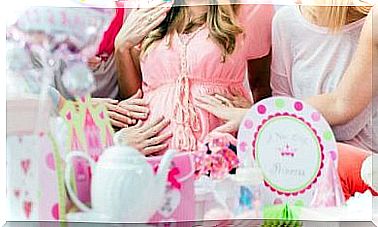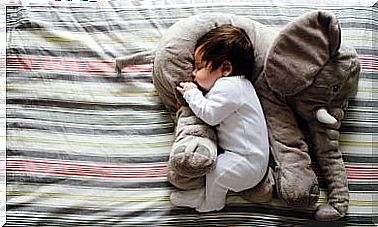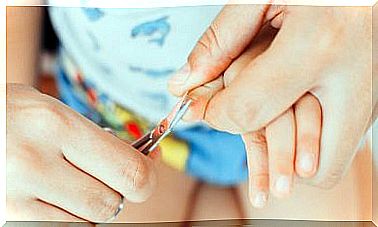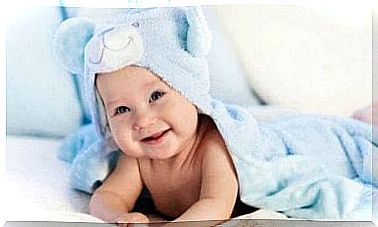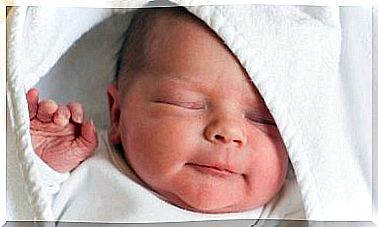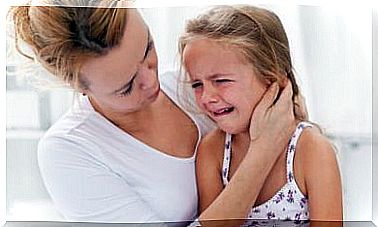5 Tips From Paediatricians For First Mothers

For Erstmütter everything is new and therefore they are often nervous. They want their child to be healthy, so they worry about almost any situation.
In this article, we share 5 tips from pediatricians to first mothers .
Remember that being a mother is a wonderful experience. Enjoy it, even if everything doesn’t always work out the way you would like it to.
Remember that positive thinking and an optimistic attitude will help you get through difficult days. Plus, motherhood is one of the best experiences a woman can have.
This includes working on some aspects of your personality like calmness and self-confidence. These qualities will help you use common sense.
To better understand this, we have a text for you from a pediatrician that went viral a few years ago:
The best is:
- It is best not to breastfeed.
- The bottle is also not best.
- The best thing is when you don’t keep it up.
- It is best not to stop holding it.
- It’s best not to put it down like that.
- It is best not to lay it down any other way.
- It is best not to cover it up in some way.
- It is best not to cover it up in any other way.
- The best thing is not to keep it warm with it.
- The best thing is to keep it warm with it.
- It is best not to feed it purees.
- It is best not to feed it with bits either.
- The best is not what your mother says.
- What’s best is not what your friend says.
- It’s not best if it has a babysitter.
- It is not the best if it goes to a daycare center or to see your grandparents.
- This upbringing is not the best.
- But a different style of parenting is not the best either.
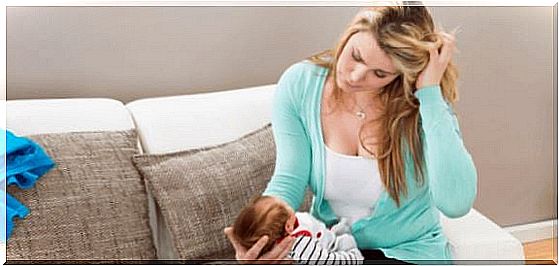
Do you know what is really the best?
- The best is what makes you really happy.
- The best is what your instincts give you to make you feel best.
- The best is what helps you be healthy too.
- The best is what allows you to be happy with your family.
- Because when you feel good, your child gets the best too. Because you are the best.
- Because when you feel safe, it feels safe too.
- Because if you think that you are fine, your calm and happiness will also reach your child.
- Let us stop telling any mother or father what is best because the best for your children is really you.
Nutritional advice for first mothers
Another major concern of mothers is that their child is well fed. And it’s a logical concern, because most paediatricians around the world advise breastfeeding in order to take good care of a newborn.
But what if you feel like the child is not getting enough?
The Spanish Association of Pediatrics (AEP) points out that most difficulties in breastfeeding are due to technical problems. Either a wrong posture or a poor chest grip.
The AEP Guide to a Good Chest Grip indicates that the baby’s entire body must be facing the mother. In addition, a large part of the areola must be inserted when opening the mouth. Especially at the bottom (where the chin is) so the tongue doesn’t hurt the nipple.
Features that indicate a good chest grip are the baby’s chin touching the chest, according to the AEP. His mouth is wide open, his lower lip is outward, and his cheeks are round or flat when sucking.
You should also be able to see more areola above his mouth than below it. These tips were not only checked by the association, but also followed up by several specialist magazines.
There is no single position suitable for breastfeeding in this pediatric organization . The mother must feel comfortable and the baby must be turned towards the mother’s body and fixed on it.
So follow these steps and try to find a comfortable and satisfying position for yourself. You will surely feed your baby the best food in the world: breast milk.
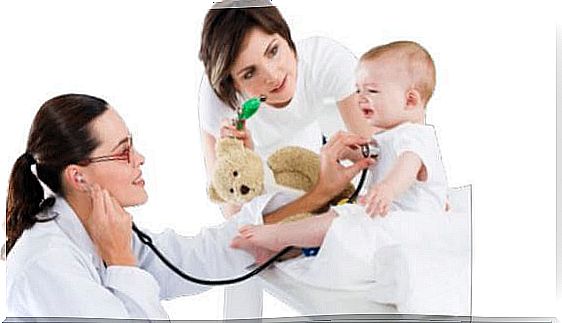
Careful advice from a pediatrician
The Venezuelan magazine “Ciencia Médica Al Día” recently published an article in which the pediatrician Marisol Godoy answers some specific questions and offers advice that will be of great interest to first mothers:
- How should I take care of the umbilical cord?
“The umbilical cord should be cleaned with alcohol every time the diaper is changed. That way we dry them out faster without exposing them to infection. If it has a strange color or a bad smell, you should see your pediatrician. “
- My baby often has the hiccups. Should I be worried?
No. Hiccups are very common in infants. Your digestive system is still immature. This usually emits gases up to three to four months of age. After that, hiccups are less common. Superstition, like a wet thread on the forehead or frightening the child, will not drive away the hiccups!
- Why does my baby cry so often? How can I comfort it?
Crying is the baby’s only way of expressing feelings and needs. The most common causes are hunger, cold or warmth, gas or a dirty diaper. If it is not possible to identify the cause of the crying, a visit to the doctor is necessary.
Another piece of advice for first mothers:
- Is it normal for my baby to sneeze so often?
It is common to see newborns sneezing constantly. This happens because their airways are very small and the environment is heavily contaminated with allergens such as dust, mold, perfume, cold or smoke. As a result, the child has to sneeze and more mucus is produced.
